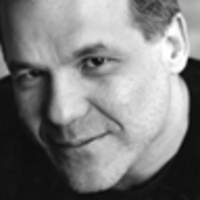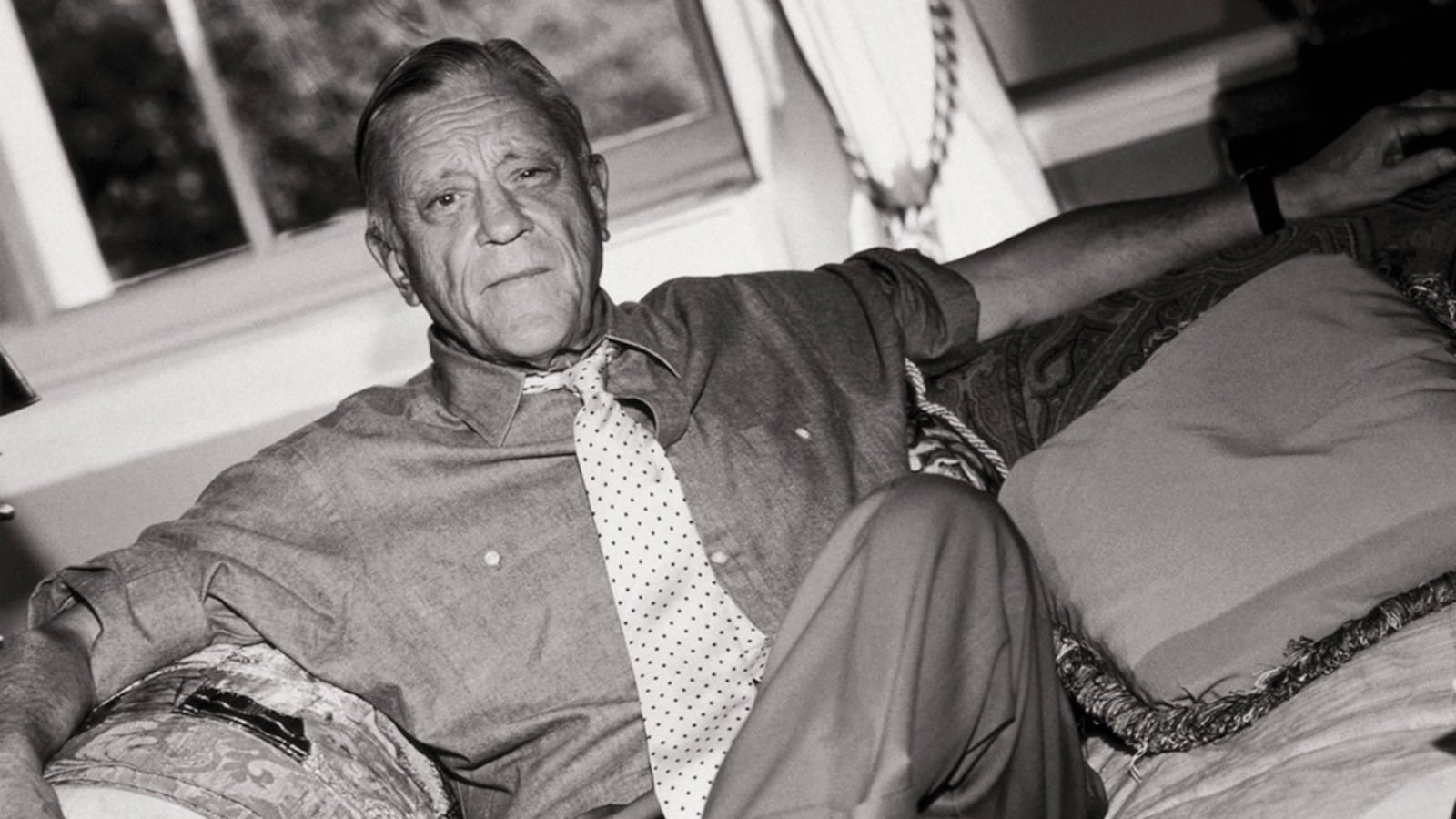Bob Woodward—famed Watergate reporter, biographer of powerful figures, nimble reaper of secret sources—threw a very public fit last week, on the occasion of a newly published biography of Woodward’s old boss, legendary Washington Post editor Ben Bradlee. In the course of telling Bradlee’s story, the author, a journalist named Jeff Himmelman reported some hitherto unknown facts about Woodward’s career. Woodward was unforgiving. “It’s bad journalism to the core,” he told The New York Times.
Once again, the genre of biography has fallen under anguished scrutiny, though in this case it’s hard to understand all the uproar. For one thing, the biography, Yours in Truth: A Personal Portrait of Ben Bradlee, was authorized by Bradlee, who told Himmelman, “Just follow your nose.” Bradlee, however, changed his tune when New York magazine published an excerpt from the book. Through his wife, Sally Quinn, he said in a statement: “I always trusted [Woodward], and I always will.”
And yet the revelations Himmelman makes about Woodward are mild to the point of being nearly sleep inducing. Himmelman has uncovered proof that Woodward and Bernstein mislead when they said they had not gotten information from a grand juror, which would have been illegal. That just proves what dogged reporters they were. The unkindest cut seemed to be that Bradlee was skeptical about some of the more colorful details in Woodward and Bernstein’s reporting. In an unpublished interview that he gave in 1990, Bradlee recalls the meetings Woodward and Bernstein described having with Deep Throat: “One meeting in the garage? Fifty meetings in the garage? I don’t know how many meetings in the garage.” Then comes the kicker heard round the airwaves. “There’s a residual fear in my soul,” Bradlee says, “that that isn’t quite straight.”
People seemed appalled that Bradlee had doubted his fabled reporters’ accuracy. But they weren’t fabled then, and it boggles the mind how anyone could get bent out of shape by the disclosure that a seasoned editor was skeptical about the details of a highly sensitive, and possibly libelous, story.
More likely, the outrage stemmed from the fact that Himmelman had not only been personally close to Bradlee, Quinn, and their son, but that he had also worked as Woodward’s research assistant and become Woodward’s protégé and friend.

The real shocker to all of this made-for-the-media media brouhaha is that anyone should be shocked at all by a biographer going about his business. I asked Patrick French, V.S. Naipaul’s acclaimed biographer, if biographers weren’t always “publishing scoundrels,” to use Henry James’s famous description of smiling scriveners who lie, deceive, and betray for a living. French didn’t think the slur retained much relevance. “There’s a degree of public self-exposure today—think Kim Kardashian—that would be anathema to any earlier era,” he replied via email. With so many people dramatizing their inner lives on TV, YouTube, Facebook, and Twitter—not to mention the exposures of gossip websites like Gawker, and secret-busters like Wikileaks—it is hard to understand any outrage at all over a biographer’s ruthless tattling.
As for French’s own relationship with his subject, I asked him if he and Naipaul had become friends, now that the biography had been written and published. “I still have admiration for him” was his tactful reply.
And that—the subject’s inevitably wounded ego—would seem to be the rub. For all the many tales of marauding biographers and their horrified subjects, writers still approach other people with requests to write their lives, and people accept the offer, in the perhaps deluded belief that they will be spared the usual betrayal and humiliation. A biographical sucker, it seems, is born every minute.
I had an intimate encounter with just such a seared ego, recently burned by his once-trusted chronicler. I had written a scathing review of James Atlas’s biography of Saul Bellow, and a few days after it appeared, I was summoned to a drink by Bellow’s son, Adam, an acquaintance of mine. His father, with whom I had once spent a long delightful afternoon, wanted me to call him. On the phone, his voice dark and low whenever Atlas’s name came up, Bellow expressed his gratitude to me for defending his life against his biographer. I assured him that the book wouldn’t hurt his reputation; it was too weak. Bellow laughed vindictively. “Yes,” he said. “Atlas has no shoulders.” He had clearly been saving that one up. His sense of betrayal was overwhelming. He and Atlas had once been friends.
It was one thing for J.D. Salinger to sue, in 1986, to stop publication of Ian Hamilton’s biography of him. (The book appeared in 1988, but with Salinger’s letters paraphrased rather than quoted.) Salinger’s fury was understandable since the biography was unauthorized.
The unauthorizing subjects’ protests can hardly be denied, even as their suddenly naked foibles are relished and devoured. It is the trusting, authorizing figures who are the psychological and anthropological curiosities. It seems strange that Bellow, a world-class novelist with a visceral grasp of other people’s motives, would ever voluntarily put his privacy in the hands of a biographer. Even this ultra-worldly man became the victim of the biographer as treacherous journalist, a figure who, as Janet Malcolm famously wrote, “is a kind of confidence man, preying on people’s vanity, ignorance, or loneliness, gaining their trust and betraying them without remorse.”

Of that lethal triad, vanity seems to be the most fatal quality. After legally squashing several efforts to tell his life story, feared Hollywood mover-and-shaker David Geffen allowed, in 1996, a Wall Street Journal reported named Tom King to get a contract to write Geffen’s life. So enamored was Geffen of his Boswell, and so confident that King would write a flattering book, that the mogul signed a three-page agreement basically promising King total access to Geffen’s existence. He even allowed King to interview his childhood psychiatrist.
And how did that work out? One year later, Geffen cut King off, refusing to have anything to do with him. After King’s book, The Operator, was published, Geffen vehemently trashed him, at one point boasting that he had called King’s boss at The Wall Street Journal and insulted King as “a dishonest scumbag.” Geffen’s rage was so outsized that when I emailed one of King’s friends to try to contact King, his friend emailed back, informing me that King had died in 2003 and wryly joking that “I have no evidence that Geffen had him killed.”
Of course, biographers’ gradual aversion to their nonliving subjects is a commonly accepted phenomenon—something like the biographical trade’s version of posttraumatic stress disorder. The more time they spend documenting a life, it seems, the more they come to resent the subject’s claims on their own lives. Robert Caro’s epic biography of Lyndon Johnson, decades in the making, is a masterpiece, but no one can miss Caro’s underlying dislike of his subject. Yet it is a dislike accompanied by a totalizing possessiveness. Sitting near Caro at a literary dinner a few weeks ago, I asked him if the long-lived rumor that LBJ had had a political rival killed when he was a young man running for Congress was true. Caro, who portrays LBJ at times as an abominable monster, capable of just about anything, was horrified. “Oh, no!” he exclaimed. It was as if I had attempted to get my arms around another man’s life-giving demon. A dead subject is putty in the hands of a biographer’s psyche.
Living subjects pose a whole other set of problems. For one thing, “you can’t libel the dead,” says Meryle Secrest, who has written biographies of Frank Lloyd Wright, Modigliani, and Stephen Sondheim. She was careful about Sondheim. “I told him that the book stops at the bedroom door,” she said.
Another recent biographical subject, Steve Jobs, faced the reality of inevitable biographical letdown very simply: he refused to look at the manuscript. “Jobs did not want to read it,” said via email his biographer, Walter Isaacson, “because he did not want it to be thought of as an in-house book, he wanted it to be considered independent and honest.” But one could just as well imagine that Jobs declined to read the finished biography because he was nervous about what it might reveal.
Jobs needn’t have worried; Isaacson’s book is respectful and sympathetic. “When writing,” Isaacson said, “about a living subject who is willing to give unlimited interviews, you end up knowing countless times more than you do about a historical figure.” And what you know can just as well be a source of sympathy as well as a provocation to unmasking. “Perhaps that [sympathy] was a flaw caused by getting to know him,” Issacson reflected.
Yet sympathy can open up new portals into a life. Tracy Kidder, the author of Mountains Beyond Mountains, a frank yet loving portrait of the doctor and AIDS activist Paul Farmer, said that “any portrait ought at least to acknowledge complexity, the fact that every human being carries around the most complex structure in the known universe.” Or as Secrest more practically described a hypothetical reader’s reaction to a wholly negative biography: “I just spent $35 for nothing.”
But it is the commitment to telling the truth, beyond any emotional attachment or social propriety, that is the core of the biographer’s trade—let the chips fall where they may. Charles Shields, the author of a recent biography of Kurt Vonnegut, experienced the perils and pitfalls of writing about both a living and a dead subject; nine months after Vonnegut authorized Shields to write his life, Vonnegut died. Shields is blunt about the effect that had on the book: it was “liberating.” Up to that point, Vonnegut had been guiding his biographer along the lines of his own narrative about his life. “He gave me what you could call a guest list” of people to talk to, Shields said. Afterwards, “the narrative became mine.”
Ownership of that narrative would seem to be the root of the biographical subject’s trauma. Seeing the story you have been telling yourself about yourself all your life become an entirely different narrative, seen through other people’s eyes, is a shock. It is something like your spouse suddenly telling you that he or she has another spouse, and a different set of kids, on the other side of town. How to cushion the blow? “Write with fairness and compassion,” Shields counseled.
Yet asked what he would say to Woodward, the biographer paused before abandoning himself to his professional instincts. “The truth hurts,” he said, “doesn’t it?”






